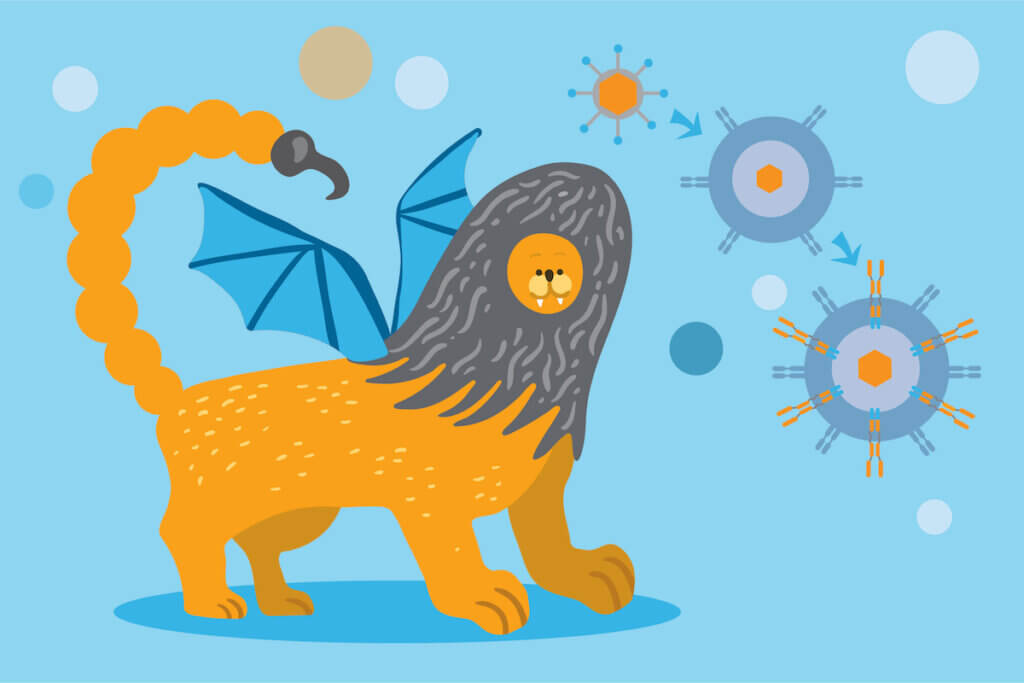One of the most exciting new cancer treatments, CAR T-cell therapy takes its complicated name, in part, from a fire-breathing monster in an ancient Greek myth.
CAR is an acronym for “chimeric antigen receptor,” referring to genetically engineered molecules manufactured in a laboratory, inserted into the genetic material of immune T cells that have been removed from the patient’s body, and then expressed as proteins on the T-cell surface. The CARs are designed to give these T cells, a type of white blood cell, highly specific homing abilities so that when they are returned to the patient, the T cells can more easily recognize and attack cancer cells throughout the body.
An antigen receptor recognizes and binds to a specific antigen — a protein like an allergen, a piece of virus, or a cancer-associated protein that can provoke an immune response.
So what is a “chimeric” antigen receptor? The term “chimeric” — pronounced kih-MAIR-ik — means having the properties of a chimera, something that is made up of very disparate parts.
In Greek mythology, the Chimera was a monster comprising parts of different animals, usually depicted as a combination of a lion, a goat, and a serpent. In biology, a chimera can mean an organism composed of genetically different cells, or a hybrid protein made by splicing several different pieces of genetic code together.

The term chimeric has been given to the genetically engineered antigen receptors because they are artificial — not because they are dangerous.
Other ‘chimeric’ terms
“Chimeric” is used in other terms in biology as well. They include:
- Chimeric antibodies: Antibodies are immune system proteins that flag foreign invaders like bacteria and viruses and neutralize them. Chimeric antibodies are made by fusing sections of antibodies from more than one species. They can be used to target malignant cells. Rituximab, a chimeric antibody used to treat non-Hodgkin lymphoma and chronic lymphocytic leukemia, was developed based on work by Dana-Farber scientists.
- Chimeric DNA: A lab-made molecule that consists of DNA from two different organisms. Also known as recombinant DNA, it is used to create genetically modified plants that are resistant to disease, among other applications.
- Chimeric gene: A type of mutation in which part of the protein-coding sections of two or more genes get combined to create a new gene. In some cases, the proteins resulting from chimeric genes may be beneficial; in others, they may contribute to disease, including cancer.
- Chimeric protein: A protein created by joining two or more genes that hold the code for separate proteins. Chimeric antigen receptors are an example of a chimeric proteins.
- Chimeric virus: A virus that contains genetic material from two or more distinct viruses. They’re being developed to study the life cycle of viruses and may one day be used in gene therapy and as cancer-killing agents.
